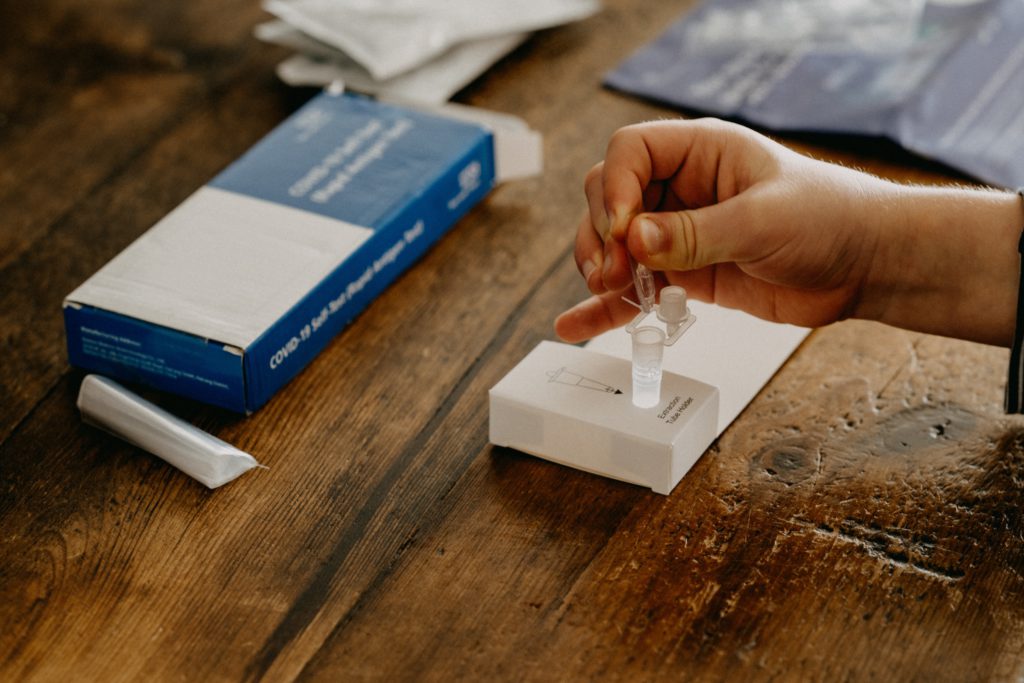From Monday, 17 January, people with COVID-19 in England can end their self-isolation after five full days, as long as they test negative on day 5 and day 6.
- People self-isolating with COVID-19 will have the option to reduce their isolation period after five full days if they test negative on both day 5 and day 6 and do not have a temperature, from Monday, 17 January
- Individuals who are still positive on their lateral flow tests must stay in isolation until they have had two consecutive negative tests taken on separate days
- This will support essential public services and keep supply chains running over the winter
From Monday, 17 January, people with COVID-19 in England can end their self-isolation after five full days, as long as they test negative on day 5 and day 6.
The decision has been made after careful consideration of modelling from the UK Health Security Agency and to support essential public services and workforces over the winter.
It is crucial that people isolating with COVID-19 wait until they have received two negative lateral flow tests on two consecutive days to reduce the chance of still being infectious.
The first test must be taken no earlier than day 5 of the self-isolation period, and the second must be taken the following day. If an individual is positive on day 5, then a negative test is required on day 6 and day 7 to release from isolation.
It is essential that two negative lateral flow tests are taken on consecutive days and reported before individuals return to their job or education, if leaving self-isolation earlier than the full 10 day period.
For instance, if an individual is positive on day 5, then a negative test is required on both day 6 and day 7 to release from self-isolation, or positive on day 6, then a negative test is required on days 7 and 8, and so on until the end of day 10.
Those who leave self-isolation on or after day 6 are strongly advised to wear face coverings and limit close contact with other people in crowded or poorly ventilated spaces, work from home if they can do so and minimise contact with anyone who is at higher risk of severe illness if infected with COVID-19.
The default self-isolation period continues to be 10 days, and you may only leave self-isolation early if you have taken two LFDs and do not have a temperature in line with guidance.
Health and Social Care Secretary Sajid Javid said:After reviewing all of the evidence, we’ve made the decision to reduce the minimum self-isolation period to five full days in England.
These two tests are critical to these balanced and proportionate plans and I’d urge everyone to take advantage of the capacity we’ve built up in tests so we can restore more freedom to this country, whilst we are keeping everyone safe.
Existing public health measures remain in place, including:
- staying at home if you feel unwell
- getting a test if you experience any COVID-19 symptoms
- wearing a face covering in crowded, enclosed spaces
- working from home if possible
- maintaining social distancing and regular hand washing
- taking up the offer of the free COVID-19 vaccine
Self-isolation may continue in certain circumstances, such as for those who work with vulnerable people. A full list will be published in guidance in due course.
Vaccinations remain our best defence against COVID-19, offering substantial protection against infection and hospitalisation – and the government continues to urge the public to get boosted as soon as you’re eligible.
In line with today’s announcement, the government will also consider the guidance for close contacts of people with COVID-19, including around the advice for fully vaccinated contacts to take daily LFDs for 7 days.




